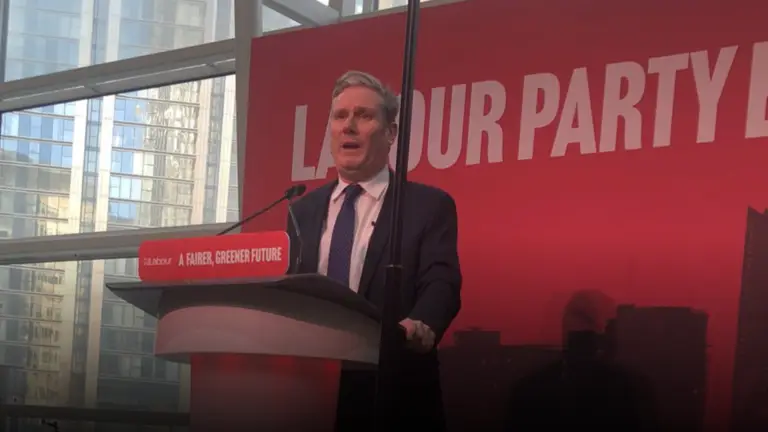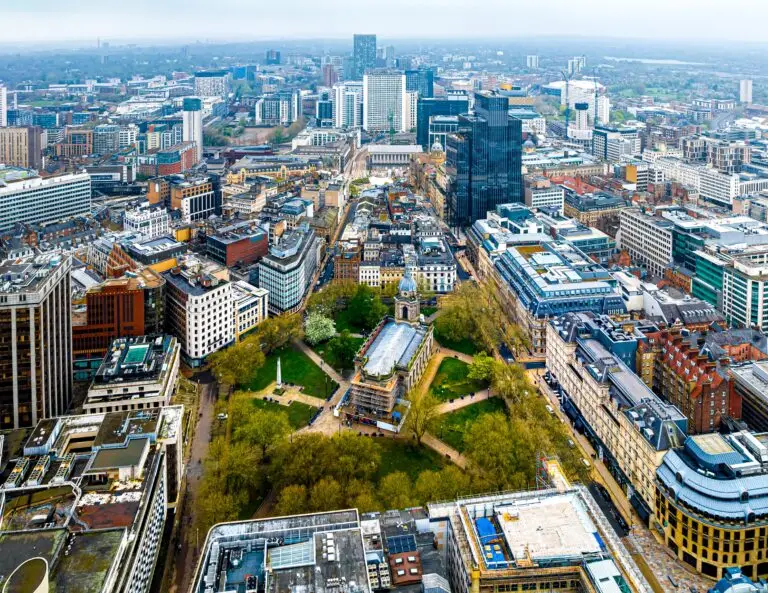PLMR Account Director, Dan Baynes attended the Labour Party Business Conference on Thursday 8th December – below he sets out some initial take-aways from the day. PLMR were a partner sponsor for the conference, to find out more about how we can help you understand and engage with Labour’s policy platform contact info@plmr.co.uk
Between 2014-15, I spent time working as part of Labour’s Shadow Business team, there was always great attention paid to ensure the operation was slick and that rhetoric and policy was suitably “pro-business” to try and emulate Blair in ’97. Having been to a lot of Labour business engagement events, I would never have envisioned a room full of 350+ businesses in the centre of Canary Wharf ready to listen and engage on the party’s approach for Government.
After a full day of speeches, policy discussion and networking with Shadow Ministers, fellow attendees I spoke to after the Conference came away very impressed and enthused about the preparation and approach Labour has taken to policy development to this point.
Keir Starmer opened up the conference with a pledge to “give Britain a new business model” to ensure the UK can tackle long-term challenges and usher a return to economic growth based on three priorities: green growth, skills and stability.
- Businesses are central to Labour’s agenda
Starmer remarked that private investment was the “game changer” and that a Labour Government would “back private enterprise to the hilt”, recognising that without strong British businesses, Labour’s wider policy agenda is shackled. Businesses are also directly feeding into this process, there were speeches by the CEOs of Aviva, SSE and HSBC and panels that included the Chair of Tesco and the CEO of Microsoft UK. Lord Jim O’Neil (formerly of Goldman Sachs and an adviser to George Osborne) chaired a session to publish Labour’s “Start-Up, Scale-Up” report, which has strong ambitions to make Britain the best place to grow for innovative entrepreneurs.
- Stability widely welcomed in the room
The last year has been a whirlwind for British businesses, the short-lasting tenure of Liz Truss has left many feeling bruised and uncertain on Britain’s suitability for long-term investment. While Rishi Sunak has eased some fears, the wider political environment remains unclear. Starmer and his Shadow Chancellor, Rachel Reeves couldn’t have been clearer on the need to grip public finances and commit to longer-term policies that will provide confidence for business. Shadow Chief Secretary to the Treasury, Pat McFadden also Chaired a panel on “long term economic stability” and has been said to have total oversight on all spending commitments made by the Shadow Cabinet.
- The green agenda is at the core of Labour’s approach
In a theme that also underpinned Labour’s Autumn Conference and the party’s “Fairer, Greener Future” strapline, sustainability is a major part of Labour’s policy development on skills, procurement, transport and R&D. Labour’s planned Industrial Strategy recently announced by Shadow Business Secretary, Jonny Reynolds has clean growth at its heart. Reynolds was clear of his frustration at delays over the last 12-years in nuclear policy, supporting battery gigafactories and home insulation, stating that a Labour Government would get behind these major projects as had occurred in France and Germany.
Overall, Labour can come away from the Conference more assured that it has secured strong relations and trust with businesses across the UK, big and small and across different sectors – how the party can communicate this progress with the wider electorate will be one of the key questions to decide the next General Election.





